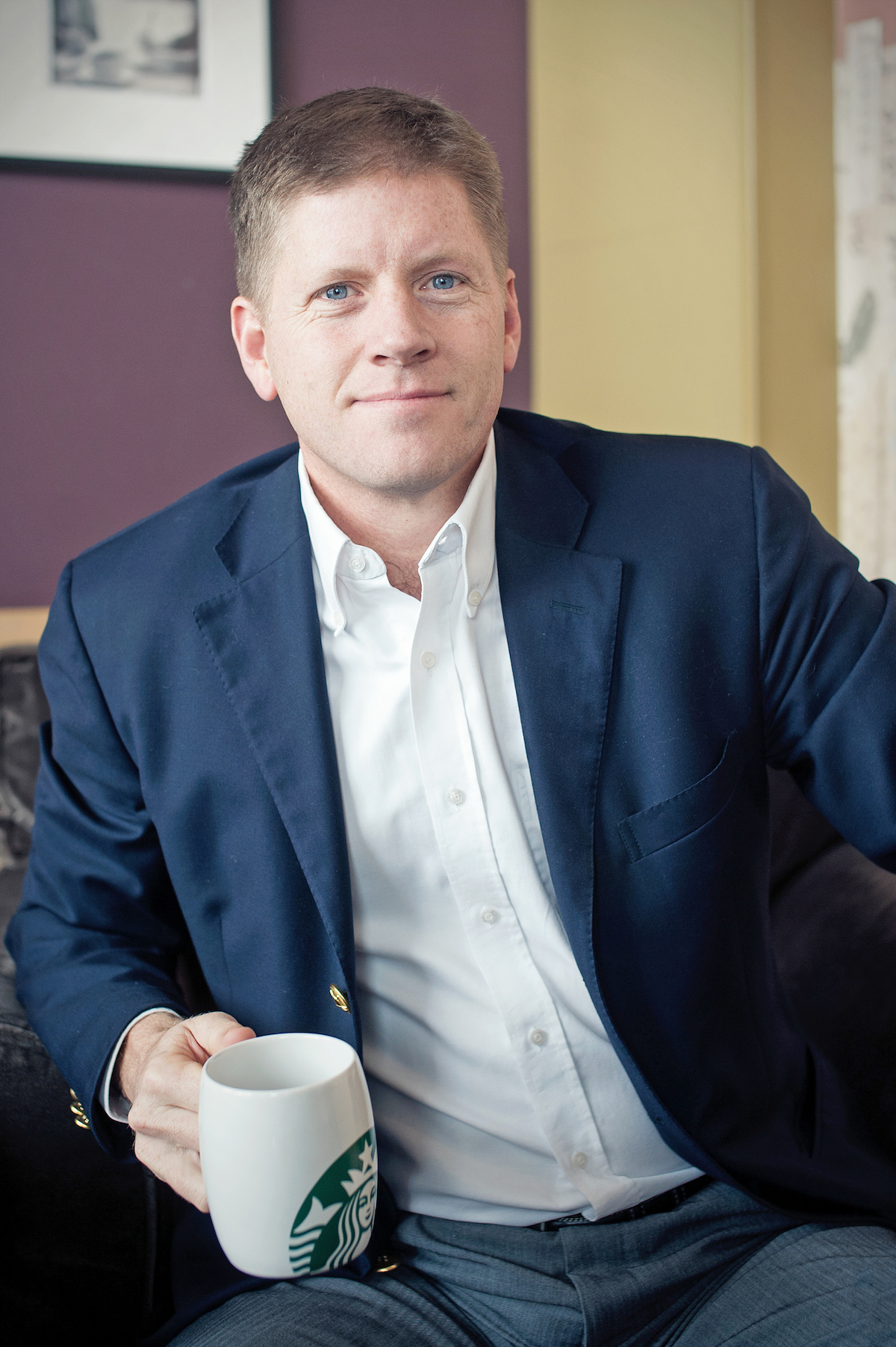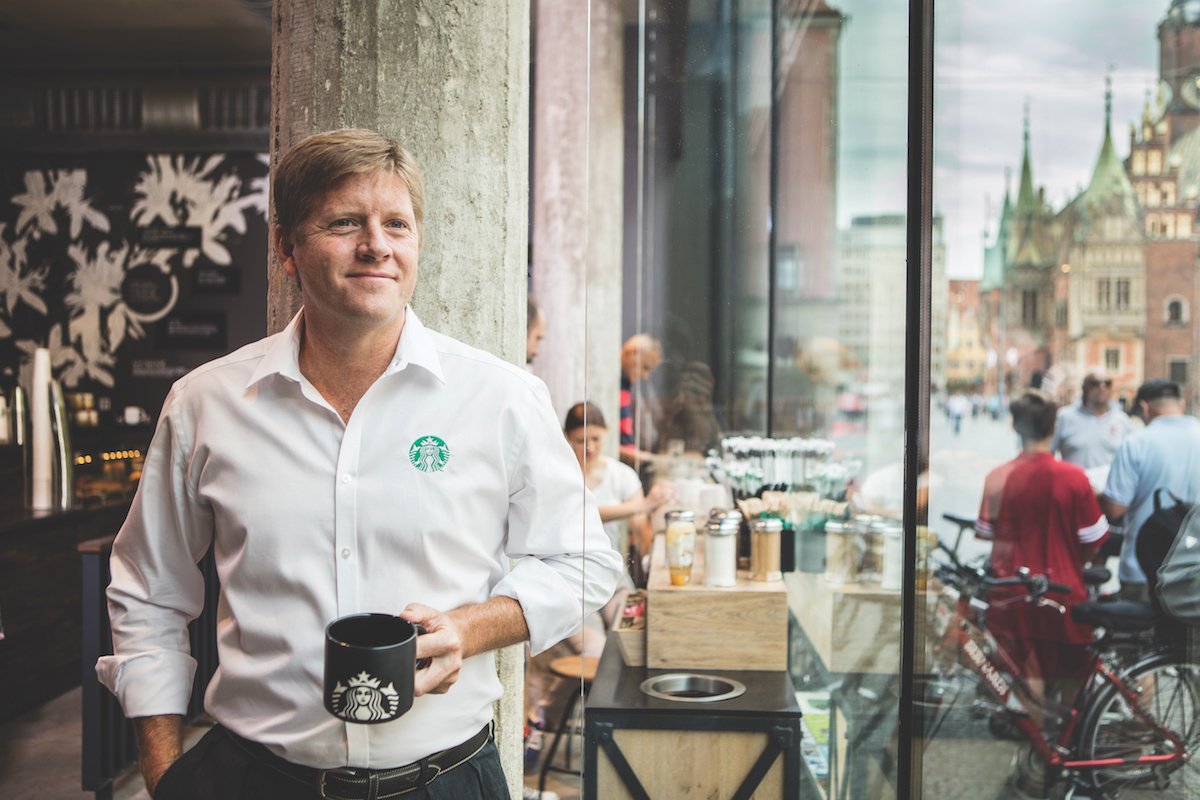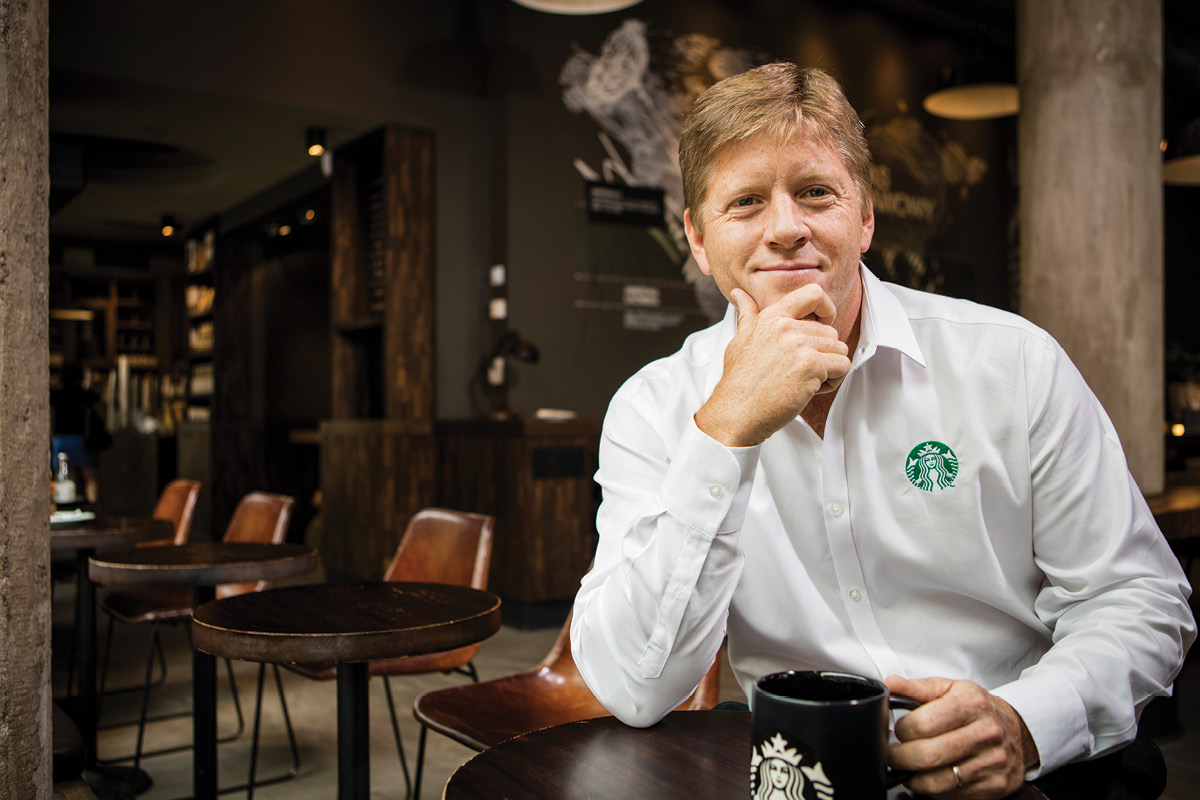As a young Henry McGovern sat glued to the TV, watching the fall of the Berlin Wall, US President Ronald Reagan addressed the nation. “He was a very important figure in my life, and there he was, talking about the fact that we were witnessing one of the most significant events in world history,” the AmRest Holdings (AmRest) founder recalls from company headquarters, situated halfway across the world in Wroclaw, Poland.
The 23-year-old budding real estate entrepreneur – and college dropout, having walked out before the final semester of a pre-med and philosophy degree at Georgetown University – had US$250,000 in the bank and an appetite for daring adventure that only the young possess. “So I decided to take a year off and go see for myself what it all meant.”
Henry McGovern’s journey from America to Eastern Europe
As Henry evokes the journey that led to the founding of American Retail Systems (as AmRest was known until 2000) with fellow American Don Kendall Jr, he makes it seem like what he did was the most natural thing in the world: young American boards a plane for a region picking up the pieces after the fall of Communism, unsure of what he was going to see or do.

More than 20 years later, he’s still in Poland and the company he founded is now the largest restaurant operator in Central and Eastern Europe. Perhaps it’s because Henry has told the story so many times before, but when hearing it for the first time, you can’t
help but marvel at the excitement of it all and wonder when Hollywood is going to come knocking for the film rights.
A freshly unified Germany was the first stop for young Henry’s journey. “From there, I wanted to drive a car to Poland, and both the police and car rental company just laughed at me. They told me that all the cars that go there get stolen, so it wasn’t possible,” he says.
Far from deterring him, this only made Henry even more determined to reach his destination. He recalls the quiet landscape that greeted him as he drove the first hundred or so kilometres past the German–Polish border.
Settling in Wroclaw
Upon reaching Wroclaw, he noted it was the first city he had come across where any of the buildings were lit up at night. “Not only were there lights on, but there was a bar open,” he laughs. “I was like, ‘Wow, this is a pretty good place’.” First impressions count, and Wroclaw has been home ever since.
“People always want a big strategy, to know where I drew inspiration from and all of that,” he says. “The truth is I didn’t. I just went on a tour. I guess my brain and heart sort of took me on that trip and chose to stop here, and then one good thing led to another.”
Soon after he arrived, he entered into a local tennis tournament and beat Wroclaw’s finest. The championship also proved to be an invaluable networking opportunity. “I was told about a historical building in the centre of the city that was being sold at auction. So along I went, and it turned out I was the only person in the room because no-one wanted to bid against an American.”
As he says, it’s easy to win an auction when you are the only person bidding. That’s how, so soon after his arrival, Henry found himself the owner of Rynek 48, occupying a prime position on the market square in the city’s medieval centre.
‘Wszystko Jest Możliwe’ – ‘Anything is possible’)
His intention was to lease the ground floor out to PepsiCo or the like to open a restaurant because he didn’t have any hospitality experience. But PepsiCo declined his invitation, offering him a Pizza Hut franchise instead. “I ended up in the restaurant business because no-one would rent the building from me. A lot of great stories come out of necessity as opposed to planning, and that is certainly the case with mine.” One Pizza Hut turned into another – the rest is history.
If anyone embodies the AmRest motto, Wszystko Jest Możliwe (‘Anything is possible’), Henry does. “Since the beginning, it’s been about trying to do something that hasn’t been done before,” he says. “The number of people I would meet who would say it isn’t possible, that we couldn’t get electricity, telephone lines or permits. We couldn’t find a supplier for mozzarella cheese, there was no quality flour – you name it, it didn’t exist.”
The phrase was one of the first he mastered in Polish. “It was imperative I learned those 3 words in order to tell everybody to get a new perspective and to figure out a solution. It really defines many of the moments we have faced as a company,” he says. It’s a motto that has propelled AmRest to heights Henry would hardly have dared to imagine when he purchased Rynek 48 back in 1993.
AmRest Holdings crosses borders
Currently, the company operates nearly 1,200 quick service and casual dining restaurants in 13 countries: Poland, Czech Republic, Hungary, Russia, Romania, Serbia, Bulgaria, Croatia, Slovakia, Spain, France, Germany and China.

It was imperative I learned those three words – anything is possible – in order to tell everybody to get a new perspective and to figure out a solution. It defines many of the moments we have faced.
It has franchise and joint venture partnerships with Burger King and Starbucks, in addition to Pizza Hut and KFC (ex-PepsiCo brands now owned by Yum! Inc.), and has also developed its own concept called La Tagliatella, an Italian restaurant that has given AmRest a foothold in Western Europe. The company also recently acquired 2 brands in China – Blue Frog Bar and Grill, and Kabb Bistro Bar.
“I think we proved early on that we could do something most businesses in Europe struggle with: crossing borders. Today we are a proven restaurant operator across different types of brands, service and borders. Our spirit and core values aren’t specific to a region or a brand,” he explains.
AmRest hires for passion
What makes this success even more remarkable is that, like Henry, many of the principal characters in the AmRest story don’t hail from a restaurant background. “Passion and discipline beat competency and experience every day,” Henry answers, when asked if this has been a help or a hindrance to its growth.
I think we proved early on that we could do something most businesses in Europe struggle with: crossing borders.
“What I’ve found is that if you hire people based on competency or experience, it leads to more repetition rather than really getting outside of the box. What we try to do is bring a lot of passion to our ideas and a lot of discipline through the systems and processes required to make the thousands of transactions that we do on a daily basis as reliable as possible,” he continues.
“So we try to hire for passion, and then we provide the on-the-job experience and we sort of demand operational excellence.” The company has developed what Henry calls a “two+two+two system”, which rotates internal talent between 2 brands, or 2 aligning disciplines, in 2 different countries, over 2 years.
Henry McGovern is Chief Emotional Officer
Henry’s current position in the company also defies the usual stereotype. Commonly referred to, both internally and externally, as “the boss”, he was CEO in the traditional sense until 2008. Today the acronym still stands but has a totally different meaning: Chief Emotional Officer.
It is a title he has given himself. “I used to be more of a top-down leader,” he admits, “but as we grew so substantially, I realised I was surrounded by so many capable people who could do certain things much better than I could.” He recognises his strengths don’t lie in marketing or operations, but rather in leadership, motivation and inspiring his team for future possibilities.
“I wanted the company to get away from a formal power structure and instead acknowledge the capabilities of everybody in it. I decided that the title of Chief Executive Officer sounded too serious – I think it puts certain boxes around things – so I decided to start introducing myself as the Chief Emotional Officer.”
It was the catalyst for a 3 year journey to develop his emotional, rather than executive, intelligence and the title has stuck. “I think everybody appreciates it and likes it. So even though I have the role of running the company and preparing the company strategy, I take my role as Chief Emotional Officer more seriously,” he says.
Wroclaw is home, but AmRest is Pan-European
If you had asked Henry 20 years ago if he believed he would still be living in Poland all these years later, he probably would have responded with a no. Although he travels frequently back to the US (he had just returned from Houston and the NFL Super Bowl when The CEO Magazine interviewed him), his wife is Polish and Wroclaw is definitely home.
So what is his vision for AmRest 20 years from now? “My vision is to be the leading restaurant company in the world,” he says. “I know it’s an audacious goal, but we’ve broken it down to something more short term that we feel we can get our heads around; that is to be the leading restaurant company in Europe in the next 5 years.” He sees no reason why this target won’t be achieved.
“We have a wonderful relationship with our franchise brand partners – with Starbucks, Yum! and Burger King. Our own brands are in excellent shape – La Tagliatella is by far the market leader in Spain, and Blue Frog is trending with the millennial crowd,” he says. The company has also become the partner of choice for Europe’s largest real estate developers.
“So we are not caught up in any one nationality; instead, we are thinking and acting in a way that is meant to be Pan-European. I think that is reflected throughout the company. Our strategy is to own the best brands that can cross borders.”
As the Wroclaw locals say, at AmRest, Wszystko Jest Możliwe.




Really enjoyed this inspiring story and shows that passion and persistence are key ingredients of success.